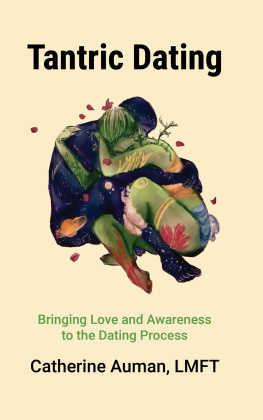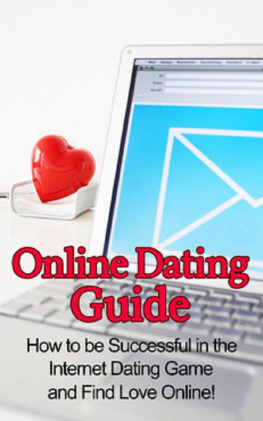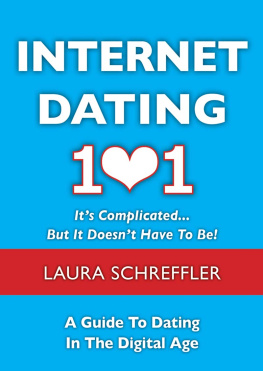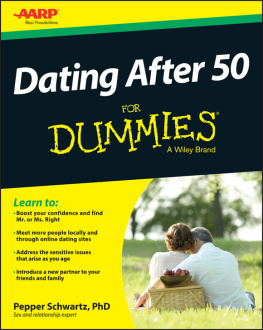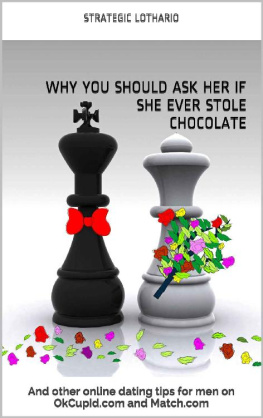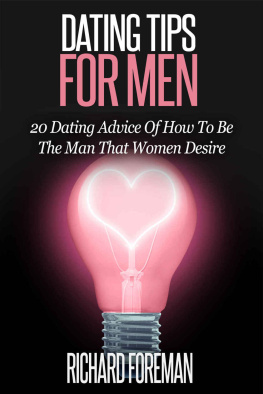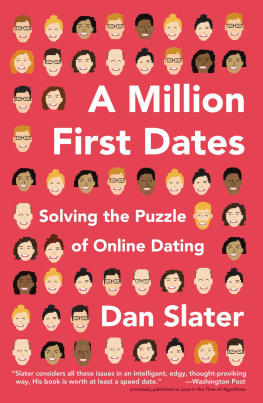EVERYTHING I EVER NEEDED
TO KNOW ABOUT ECONOMICS
I LEARNED FROM
ONLINE DATING
PAUL OYER
HARVARD BUSINESS REVIEW PRESS
BOSTON, MASSACHUSETTS
Copyright 2014 Paul Oyer
All rights reserved
Printed in the United States of America
10 9 8 7 6 5 4 3 2 1
No part of this publication may be reproduced, stored in or introduced into a retrieval system, or transmitted, in any form, or by any means (electronic, mechanical, photocopying, recording, or otherwise), without the prior permission of the publisher. Requests for permission should be directed to permissions@hbsp.harvard.edu, or mailed to Permissions, Harvard Business School Publishing, 60 Harvard Way, Boston, Massachusetts 02163.
The web addresses referenced in this book were live and correct at the time of the books publication but may be subject to change.
Library of Congress Cataloging-in-Publication Data
Oyer, Paul E. (Paul Edward), 1963
Everything I ever needed to know about economics I learned from online dating / Paul Oyer.
pages cm
ISBN 978-1-4221-9165-1 (hardback)
1. Online datingEconomic aspects. 2. EconomicsSociological aspects. 3. EconomicsPsychological aspects. I. Title.
HQ801.82.O94 2014
306.730285dc23
2013029760
IN MEMORY OF MY MOTHER
CONTENTS
Deciding When to Settle
Hedges, Omissions, and Just Plain Lies
The Facebook Effect
Putting Your Money Where Your Mouth Is
Stereotypes
Big Fish or Big Pond?
Stigma
Why Everyone in the Office and the Neighborhood Is Similar
Education and Good Looks Pay
Negotiating at Home
INTRODUCTION
It was a crisp fall evening, and I was sitting at a table outside Cafe Borrone near my house in the heart of Silicon Valley, awaiting the arrival of my first date in over twenty years. A lot had happened in that time. For example, within a twenty-five mile radius of the cafe, engineers had transformed our lives dramatically by developing the internet. At a more personal level, I had become an economist and was now a professor teaching and researching my field.
As I waited, I realized how the rise of the internet had led me to my seat at the cafe. The internet not only created Facebook, eBay, and Amazonit has also transformed the dating scene. In 1990, dating services existed, but they were generally looked down on. Many, probably most, people (including me) thought that only the desperate used dating services. But thanks to the internet, which made communication so easy, many people had turned to online dating by 2010.
It also hit me that internet dating itself is largely economicsand I was in a much better position to understand that than I was when I was last on the market. For the last twenty years, as the internet transformed the economy, Ive spent at least part of almost every day analyzing markets. Suddenly, I was thrust into one of the most interesting markets there is. Match.com, eHarmony, and OkCupid, it turns out, are no different from eBay or Monster.com. On all these sites, people come together trying to find matches. Sure, there are a lot of differences between someone selling a used bowling ball on eBay and someone signing up for Match.com, but the basic idea is the same. The bowler needs to think about how to present his bowling ball to get what he wants (money, presumably) just as the Match.com participant needs to present himself to get what he wants (a partner in most cases, casual sex in others). Its really not that different.
And after spending twenty years learning about and studying markets, as well as watching them develop in the modernizing information economy, I had suddenly been thrust back into one of the most fascinating markets that existsthe market for life partners. The models I had been studying and researching were no longer abstract ideas or objective statistics. I became a player in the market, thinking about how all the ideas economists study were driving my behavior and the behavior of all the other people on dating websites.
Granted, online dating is a very complicated market because, unlike stock markets or gold markets, the items being traded are not commodities. There are no perfect substitutes in this marketeach item is different. Also, no money trades hands. This lack of money may make the dating market not seem like a market at all, but eighteen years of economics training has allowed me to see economics everywhere. And no place has more economics than online dating sites.
Hopefully, by the end of this book, you too will be seeing economics everywhere in todays modern information economy. In the next ten chapters, I hope to explain key microeconomic concepts to anyone who wants to learn a little economicsideas that are fundamental to how the modern economy works and increasingly to our personal lives as well: search, signaling, adverse selection, cheap talk, statistical discrimination, thick markets, and network externalities. These ideas are all driving the behavior of online dating participants every day, and that unique market is where Ill start each chapter.
Ill appeal to examples from my own experiences (that first date at Cafe Borrone and many that followed did not work out, so I have plenty of others to draw from) and from stories Ive read and heard from others. Each chapter will go on to explain how this same economic idea plays out in other places such as the labor market, eBay, or buying a housethat is, youll learn the economics that drive the world through the lens of online dating.
My hope is that you will learn a lot about economics and how the modern world works by reading the pages ahead, and that youll have a good time doing so. I also hope that youll find at least some of the information useful if you ever use an online dating site, although I find it a little hard to imagine I could ever help anyone looking for love. But you never know.

. I know what youre thinking. Yes, plenty of money trades hands in markets for partners. But most people involved in online dating are not buying or selling sex. I will not touch on the prostitution market or sex trade at all in this book. Sorry.
. If you do learn something useful along these lines, please invite me to the wedding. I hardly ever get the chance to go to weddings anymore.
SEARCH THEORY
Deciding When to Settle
Many people believe there exists a single person who is their perfect partner or soul mate. That may be true, but then I certainly hope that my soul mate does not live in a remote village in India. Suppose that my soul mate was born, like me, in the 1960s. Limiting myself to women who are still alive, and assuming that half of them have already met their soul mates, I have perhaps 200 million potential partners. If I meet two potential partners a day, theres a 50/50 chance I will find my soul mate within a quarter of a million years.
OK, the strategy of meeting every woman I can until I find my soul mate doesnt sound too promising. So whats my best alternative? If I accept that I wont meet the one, when should I think Ive met the best one available, given the amount of time and effort I can reasonably allocate to looking for a partner?
Lets start by thinking of a day in my life. At the time of this writing, I am not seeing anyone seriously. So here is a partial list of things I hoped to accomplish today when I woke up this morning: meet (or at least connect with) my next life partner, do some analysis for an academic paper that I am working on, do the New York Times crossword puzzle, get updated on the news through the newspaper and NPR, eat something truly delicious, exercise, spend some quality time with my children, walk my dog, and practice the piano. I could actually go on and on, but lets start there.


